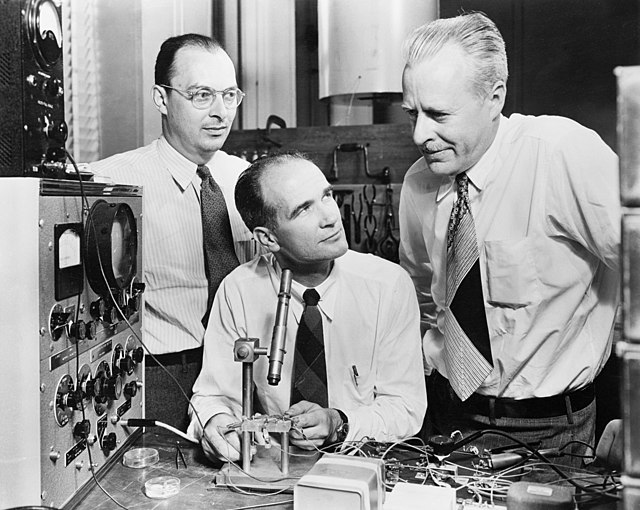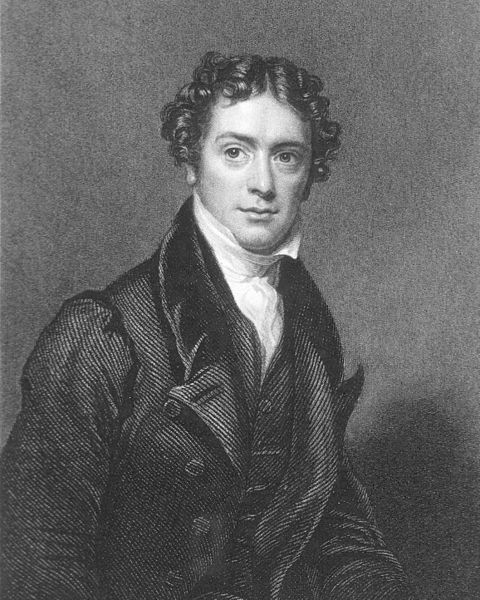John Bardeen was an American physicist and electrical engineer. He is the only person to be awarded the Nobel Prize in Physics twice: first in 1956 with William Shockley and Walter Brattain for the invention of the transistor; and again in 1972 with Leon N. Cooper and John Robert Schrieffer for a fundamental theory of conventional superconductivity known as the BCS theory.
Bardeen in 1956
John Bardeen, William Shockley and Walter Brattain at Bell Labs, 1948
A stylized replica of the first transistor invented at Bell Labs on December 23, 1947
A commemorative plaque remembering John Bardeen and the theory of superconductivity, at the University of Illinois at Urbana–Champaign
Electrical engineering is an engineering discipline concerned with the study, design, and application of equipment, devices, and systems which use electricity, electronics, and electromagnetism. It emerged as an identifiable occupation in the latter half of the 19th century after the commercialization of the electric telegraph, the telephone, and electrical power generation, distribution, and use.
Electrical engineering
The discoveries of Michael Faraday formed the foundation of electric motor technology.
Guglielmo Marconi, known for his pioneering work on long-distance radio transmission
A replica of the first working transistor, a point-contact transistor







